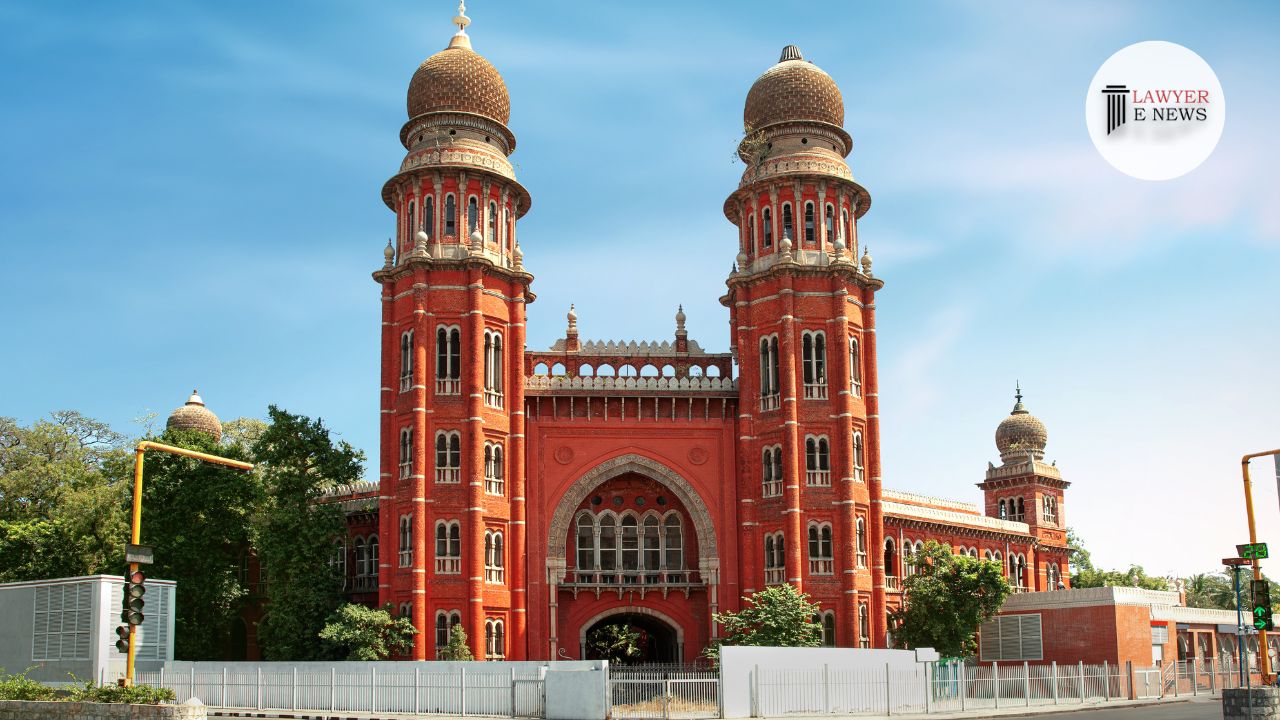-
by Admin
15 February 2026 2:16 AM



Court validates the disciplinary process under POSH Act, 2013, emphasizing adherence to natural justice principles.
In a significant ruling, the High Court of Madras has dismissed the writ appeal filed by Samuel Tennyson, affirming the legitimacy of the internal complaints committee's findings and the subsequent disciplinary actions taken by Madras Christian College (Autonomous). The judgment, delivered by Justices R. Suresh Kumar and K. Kumaresh Babu, underscores the importance of procedural integrity and natural justice in handling cases of sexual harassment in the workplace.
The appellant, Samuel Tennyson, an Assistant Professor in the Zoology Department at Madras Christian College, was accused of sexual harassment during a study tour in January 2019. Following the complaints, the college initiated proceedings under the Sexual Harassment of Women at Workplace (Prevention, Prohibition and Redressal) Act, 2013 (POSH Act). An internal complaints committee conducted an enquiry and recommended disciplinary action, leading to Tennyson's dismissal. Tennyson challenged the findings and the process, alleging procedural lapses and violation of natural justice.
The court affirmed the internal committee's role as a fact-finding body and its report's equivalence to an enquiry report under disciplinary action. This aligns with the Supreme Court’s directives in the Vishaka guidelines and subsequent judgments, such as Medha Kotwal Lele & Ors vs. UOI & Ors. The court stated, "The findings and the report of the complaints committee shall not be treated as a mere preliminary investigation but as an inquiry into the misconduct of the delinquent in sexual harassment cases".
Addressing the appellant's claims of not being provided with complaint copies and witness statements, the court found substantial evidence to the contrary. The appellant had acknowledged receipt of these documents in his written response. Moreover, the court verified that the appellant was given ample opportunity to defend himself, including the presence of his advocate during witness examinations.
The court emphasized that the disciplinary authority followed due process, issuing a show-cause notice based on the committee's findings and providing the appellant with opportunities for representation and defence. The judgment highlighted that procedural violations alleged by the appellant were unsubstantiated, as the internal committee's enquiry adhered to the principles of natural justice and provided fair opportunities for defence.
The court relied on established precedents, including the Supreme Court's guidelines in Vishaka and Medha Kotwal Lele, to assert the binding nature of the internal complaints committee's findings. The court noted that treating the committee's report as a mere preliminary step would undermine the framework designed to address sexual harassment complaints effectively. The procedural safeguards provided by the POSH Act were deemed sufficient to uphold the disciplinary actions taken against the appellant.
"The findings and the report of the complaints committee shall be treated as a finding/report in an inquiry into the misconduct of the delinquent," stated Justice K. Kumaresh Babu, reinforcing the committee's authority in disciplinary proceedings.
"Sufficient opportunities had been afforded to the appellant, and he cannot be heard to say that he had been denied the opportunities," observed the court, dismissing claims of procedural unfairness.
The High Court's dismissal of the appeal reaffirms the procedural integrity and significance of internal complaints committees under the POSH Act, 2013. By validating the disciplinary process followed by Madras Christian College, the judgment underscores the judiciary's commitment to ensuring fair and just handling of sexual harassment cases. This ruling is expected to bolster the enforcement of workplace harassment laws, ensuring robust mechanisms for redressal and accountability.
Date of Decision: April 30, 2024
Samuel Tennyson vs. The Principal & Secretary, Madras Christian College (Autonomous) & Others
